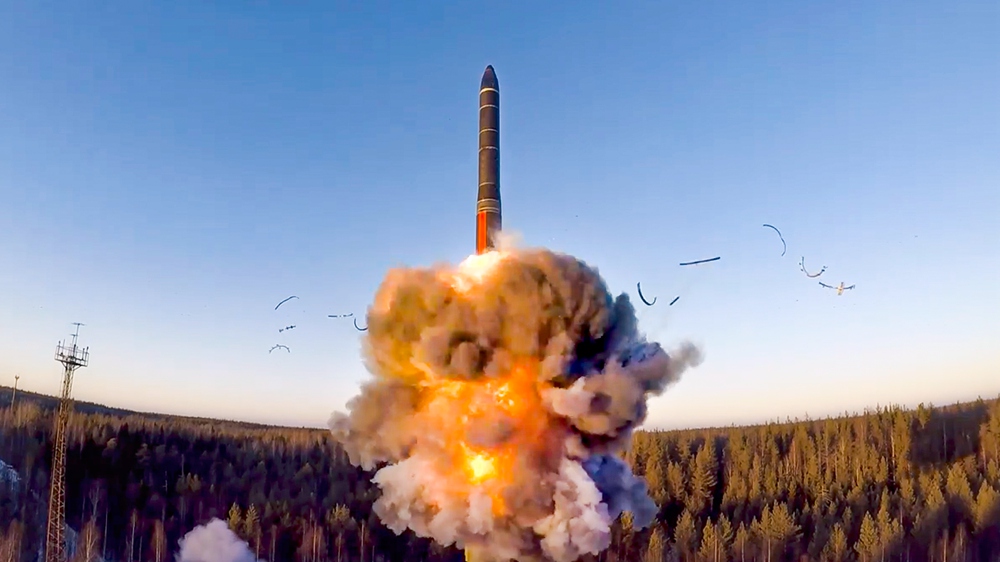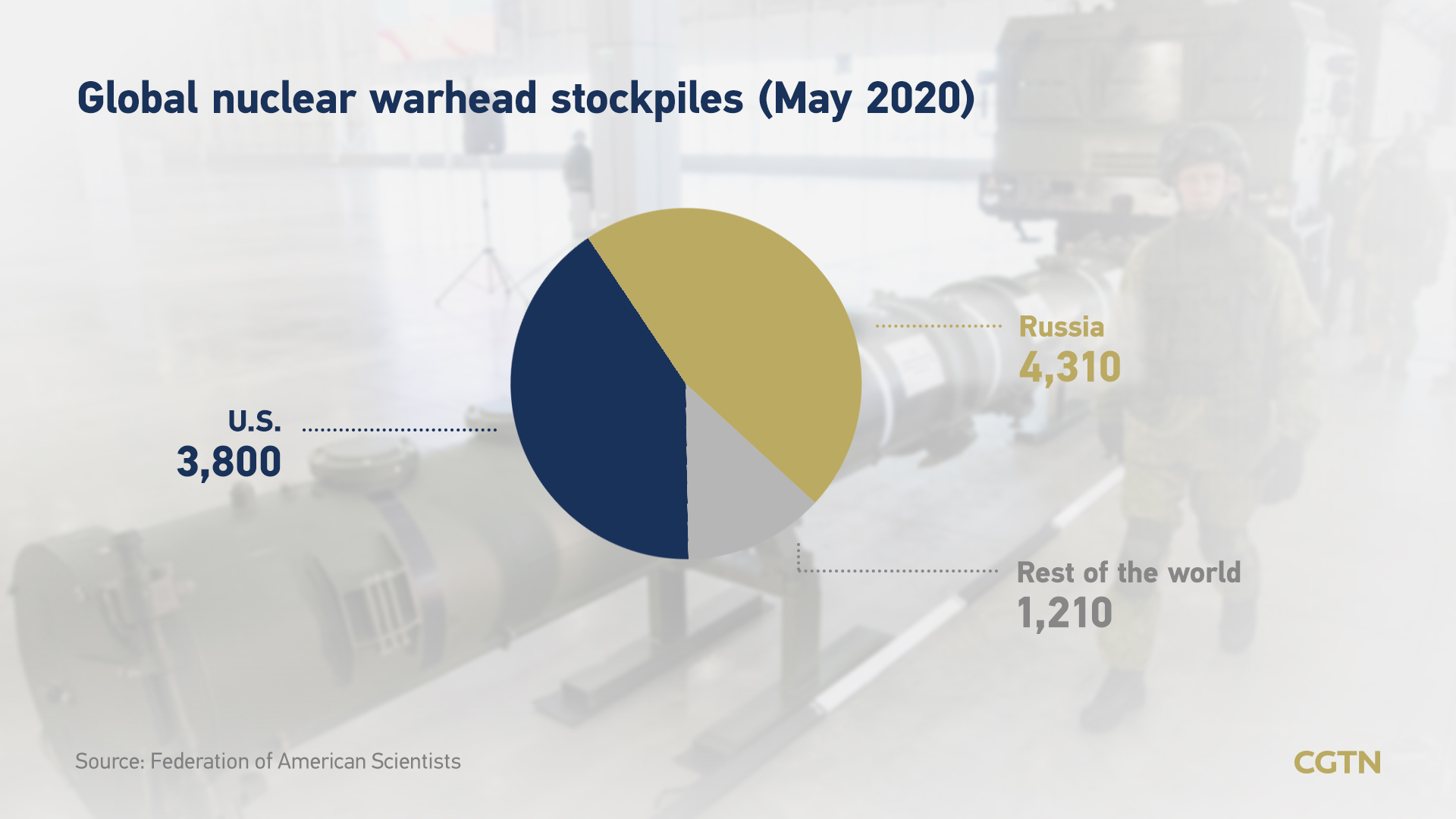
A ground-based intercontinental ballistic missile is launched from the Plesetsk facility during a drill in northwestern Russia, December 9, 2020. /AP
A ground-based intercontinental ballistic missile is launched from the Plesetsk facility during a drill in northwestern Russia, December 9, 2020. /AP
U.S. President Joe Biden will seek a five-year extension to the New START arms control treaty with Russia, the White House said on Thursday, ahead of the treaty's expiration on February 5.
"The United States intends to seek a five-year extension of New START, as the treaty permits," said Jen Psaki, White House press secretary, adding "This extension makes even more sense when the relationship with Russia is adversarial as it is at this time."
The Kremlin said on Wednesday it remained committed to extending New START and would welcome efforts promised by the Biden administration to reach an agreement.

Biden made clear he will not attempt a "reset" of relations as attempted in varying forms by every post-Cold War president, including the Trump administration. The treaty has limited the United States and Russia, two nuclear superpowers, to 1,550 nuclear warheads each.
Marshall Billingslea, who led the START negotiations for former President Donald Trump, immediately denounced Biden's offer, saying it "shows stunning lack of negotiating skill." The Trump administration had voiced willingness for a one-year extension but talks broke down over U.S. insistence on tougher verification that Russia has frozen its nuclear work.
Psaki said that the new intelligence chief, Avril Haines, would start an investigation into Russia's suspected poisoning of Kremlin critic Alexei Navalny, who was arrested Sunday on his return to Moscow, as well as on Russia's alleged interference in the 2016 U.S. presidential election and on whether it was behind the massive SolarWinds hack that shook the U.S. government and corporations.
Russian President Vladimir Putin called Navalny poisoning inquiry "a trick," and accused Navalny of receiving help from the U.S. secret services last year. Russian authorities insisted that the doctors who treated Navalny in Siberia before he was transferred to Germany found no traces of poison. Moscow has also denied accusations of its interference in the 2016 U.S. presidential election.
During the Trump administration, the United States withdrew from three major arms control treaties with Russia, including the Joint Comprehensive Plan of Action in 2018, the Intermediate-Range Nuclear Forces Treaty in 2019 and the Open Skies Treaty recently in November.
(With input from Reuters, AFP)

